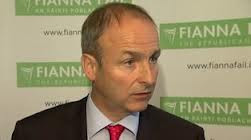People someitmes ask me what’s my favourite town and I never hesitate or stop to think. Not Belfast, not Derry, not Omagh - my favourite town is Corby. Never heard of it? Let me explain then.
Corby is located in Northamptonshire in England and what makes it my favourite place is that it wants to be allowed to vote in the Scottish referendum. You see, a lot of Scottish people travelled south to Corby in the 1930s, to work in the iron and steel mills. The descendants of these migrants to England, led by Conservative councillor Rob McKellar, want to have a say in the independence or non-independence of Scotland. There’s roughly 12,000 of them. Mr McKellar is a second generation Scot himself and he says Corby has been influenced by Scottish culture, dialect, food and places of worship. “I think anybody who is entitled to hold a Scottish passport under the Scottish National Party’s (SNP) regime should be allowed to do so”.
I’m with Mr McKellar. You don’t have to be living in a place to feel all sorts of emotional ties and loyalties to it. I’ve not lived full-time in Omagh since I was twelve yet I feel a tug, a sense of belonging to that town, even if it does come second to gallant little Corby.
Of course it would be wrong to apply this in just one instance. If the children and grandchildren and maybe great-grandchildren of migrants to Corby are to get a vote in Scotland’s future, it’s only fair that the diaspora of other countries should have the same rights. What was it Councillor McKellar figured was the number entitled to vote in Corby - 12,000? OK. At last count in the United States alone, there are some 40 million people who have an Irish background and who feel some degree of loyalty to Ireland. And it goes without saying that Ireland has "influenced culture, dialect, food and places of worship" in that country. So when the Scottish referendum is held in 2014, Corby’s 12,000 really should have a say. Likewise, when we persuade the British Secretary of State to get her finger out and allow a border poll here - should the constitutional position be changed so a United Ireland can come about - then the US’s 40 million must have a say too. And after that there’s Canada, Australia, New Zealand, England, Scotland...
So stand up for the Corby men! And women. They could yet play a part in changing (perhaps unwittingly) the fate of these islands.





















